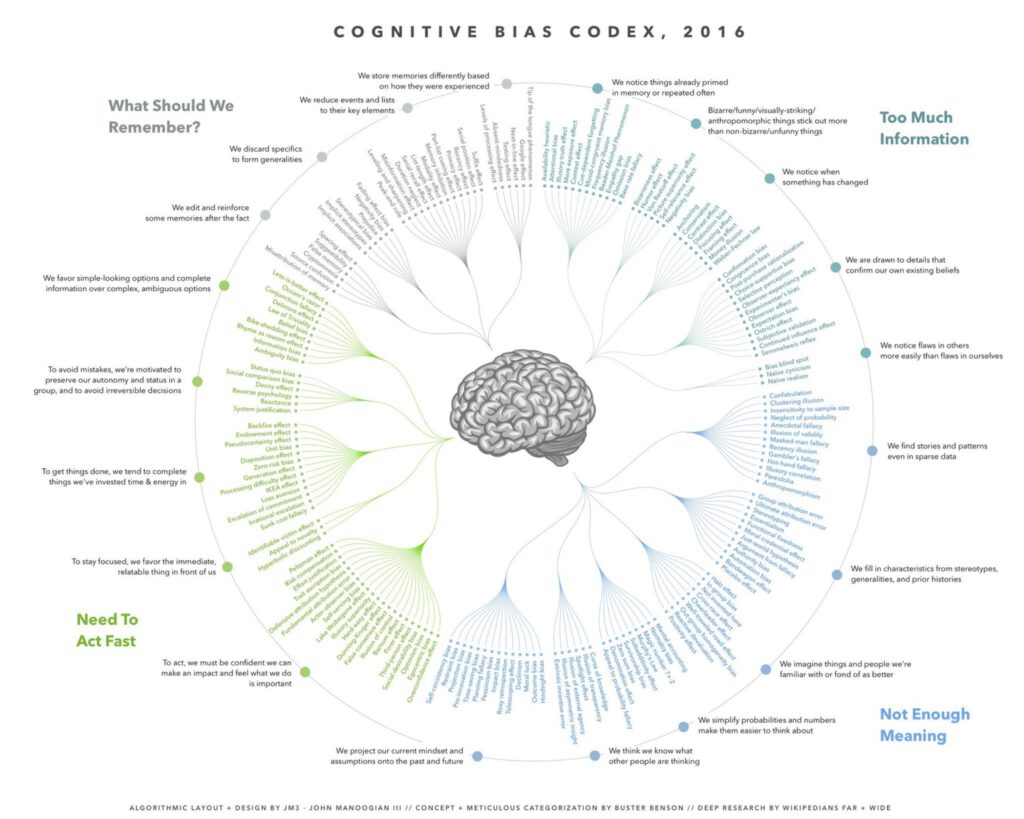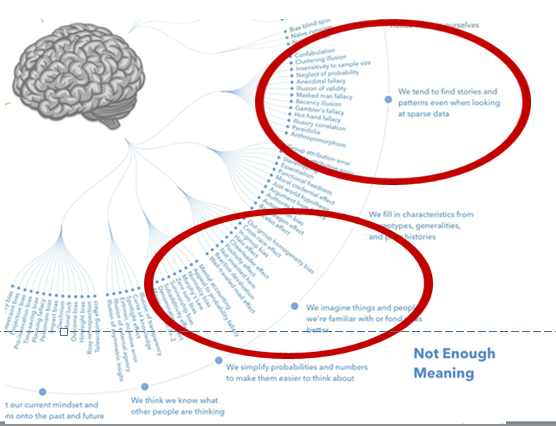What about bias?
When we’re trying to make diverse teams become truly innovative, to include all perspectives and to enhance intercultural communication, then we need to talk about bias—unconscious bias.
The Architecture of Bias
The word “bias” refers not to one single bias, like stereotyping or ethnocentrism, but a whole array of biases. It’s probably more accurate to speak of the Architecture of Bias found in our own minds. It’s the way our cognitive processes work. Put simply, bias is built-in; it’s the default setting of our cognitive systems. Although we as autonomous, rational individuals usually feel that we’re in the drivers’ seat, we’re actually being cheated and challenged by our own perceptions and interpretations all the time. Why?
Because biases occur unconsciously and fast, as Nobel Prize winning psychologist Daniel Kahnemann explains in his landmark book ‘Thinking Fast and Slow’. Biases are natural, although not desirable.

Let’s dive into bias
Take a look at this crowd-sourced Cognitive Bias Codex. It includes some 180 biases in four major categories. It shows that biases are related to the cognitive structures of survival. As Joseph Shaules states: “Our cognitive processes evolved to make effective judgments about our environment in the face of novelty and information overload, uncertainty about how to interpret our experiences, the need for quick responses in the face of possible danger, and having to rely on imperfect recall of past experiences”. The evolutionary roots of biases can be seen in the four corners of the illustration. Let’s zoom in into one of these sections: Not Enough Meaning.
How to make meaning based on limited information?

As humans in this complex globalized world, we’re often uncertain about how to interpret situations. Interculturally and within contexts of diversity even more so! Many biases that interculturalists work with are related to the challenge of meaning-making. What do we do, when we need to make judgments or interpretations based on limited information? We fill in characteristics from stereotypes, generalities, and prior histories, for instance the group attribution error or bandwagon effect. And we imagine things and people we’re familiar with or fond of as better: in-group bias, out-group homogeneity bias, ethnocentrism, halo-effect. In sum: we jump to conclusions and us-them thinking. It’s not desirable, but unfortunately biases are just the way our minds work – especially when we are under stress or tired.
So then, how to overcome bias?
The first thing to do is to understand bias and thus the way our minds work. A crucial element is the dual processing structure of our mind. That refers to our attentive mind (slow thinking) and intuitive mind (fast thinking); they work seemingly simultaneously yet have unique characteristics. Although the attentive mind often ‘thinks’ it’s in control, the intuitive mind (autopilot) might, in fact, be more in control than we realize. Often, we do not even notice these automatic responses and biases. Once we have more of a grip on these cognitive processes, we can more actively try to intervene (attentively) and prevent ourselves from being overly influenced by these biases. That will, however, cost us mental energy, a resource that is limited. Being relaxed and mindful, taking care of yourself by having a good night’s sleep, or a nice lunch, and showing empathy in conversations – these simple steps are some first stepping stones to getting our biases under control!
Like to know more?
Join the Masterclass Brain, Mind and Culture that Joseph Shaules and I have organized and will be facilitating in January 2021. This Masterclass is a blended learning course (webinars-podcasts-online learning) that introduces the latest insights of culture, brain and mind sciences to those living and working interculturally. You will gain a deeper understanding of the psychology of intercultural experiences, including: culture and cognition, biases, and deep culture learning and transformation. You will learn to be a more insightful interculturalist and learn how to encourage intercultural learning in others.
References:
Daniel Kahnemann (2011) Thinking Fast and Slow
Joseph Shaules (2020) Language, Culture and the Embodied Mind: A Developmental Model of Linguaculture Learning.

